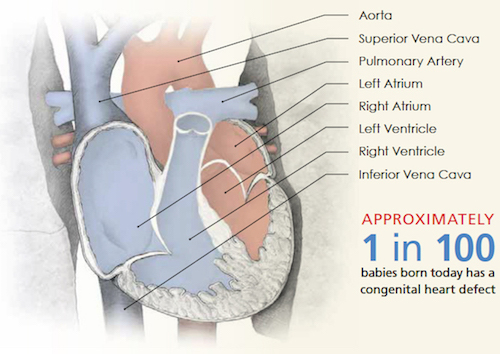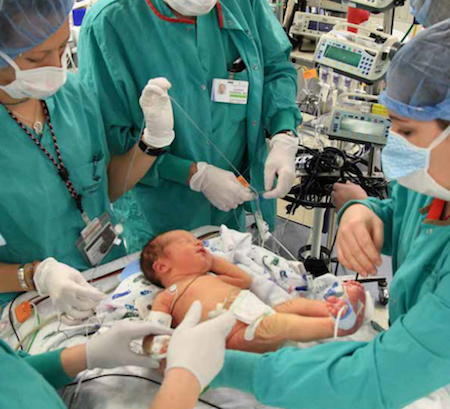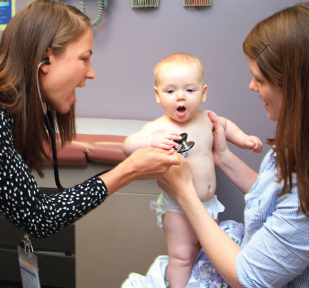

Congenital Heart Disease (CHD) is one of the most frequent birth defects and represents a common cause of infant mortality. The prevalence and severity of CHD place an enormous burden on our health care system; the hospitalization costs for children with CHD surpassed $5.6 billion in 2009. Several lines of evidence support a critical role for genetics as an important etiological factor in CHD. The Pediatric Cardiac Genomics Consortium (PCGC) was formed as part of the National Heart Lung and Blood Institute’s strategic plan to accelerate the translation of basic research findings into clinical studies and trials. Specifically, the goal of the PCGC is to elucidate the genetic underpinnings of CHD and to relate genetic variants to clinical outcomes. Utah was selected as one of five research centers to participate in the PCGC program, with Drs. Martin Tristani-Firouzi, Mark Yandell and Joe Yost serving as Principal Investigators.

The Utah PCGC Center capitalizes on a recently validated and emerging bioinformatics technology that provides four basic functionalities: (1) the ability to estimate the functional impact of genomic variants no matter where they lie in the genome: coding, intergenic, splice sites, etc.; (2) the ability to computationally interrogate patient genotypes not only for dominant de novo alleles, but also for incompletely penetrant dominant, simple recessive, and compound heterozygote disease models; (3) the ability to carry out these analyses in the context of pedigrees, phenotype information, and expression data from patient-specific induced pluripotent stem cell-derived cardiomyocytes; and (4) the capability to share results for patient management and consortium-wide collaborative analyses. The Utah PCGC Center aims to fill the knowledge gap of “missing heritability” surrounding CHD by leveraging novel tools designed at the University of Utah that enable integrated computation on personal genome/exome sequences, patient phenotype descriptions and pedigrees, and patient-specific expression data, all in a robust statistical framework.

A principal strength of the Utah PCGC Center is our relationship with The Heart Center at Primary Children’s Hospital (PCH). The Heart Center serves the pediatric population with congenital and acquired heart disease and the adult population with CHD throughout the Intermountain West. The Center’s large referral-base encompasses Utah and major portions of Wyoming, Idaho, Nevada, Montana, and western Colorado. Since it is the only tertiary, referral pediatric center in the Intermountain West, all children with CHD in this large geographical region eventually receive care at the Heart Center. Typically, this care is life-long as relatively few individuals leave the area ensuring longitudinal outcome data is readily available for the majority of patients. The Center provides comprehensive, state-of-the-art evaluation, diagnosis, treatment, and long-term follow-up care for acquired and congenital cardiac conditions by merging Pediatric Cardiology, Cardiothoracic Surgery, Cardiac Critical Care, and Cardiac Anesthesia services under a single umbrella.
By combining the unique resources available here in Utah (The Heart Center, the Utah Population Database, the Pediatric Cardiology Genotype-Phenotype Core, the Utah Genome Project, the USTAR Center for Genomic Discovery), the Utah PCGC Center will (1) identify new alleles in known CHD-causing genes; (2) identify novel CHD loci; (3) define the complex inheritance of CHD; and (4) define the genomic contribution to clinical outcomes thereby strengthening the foundation for outcomes prediction.